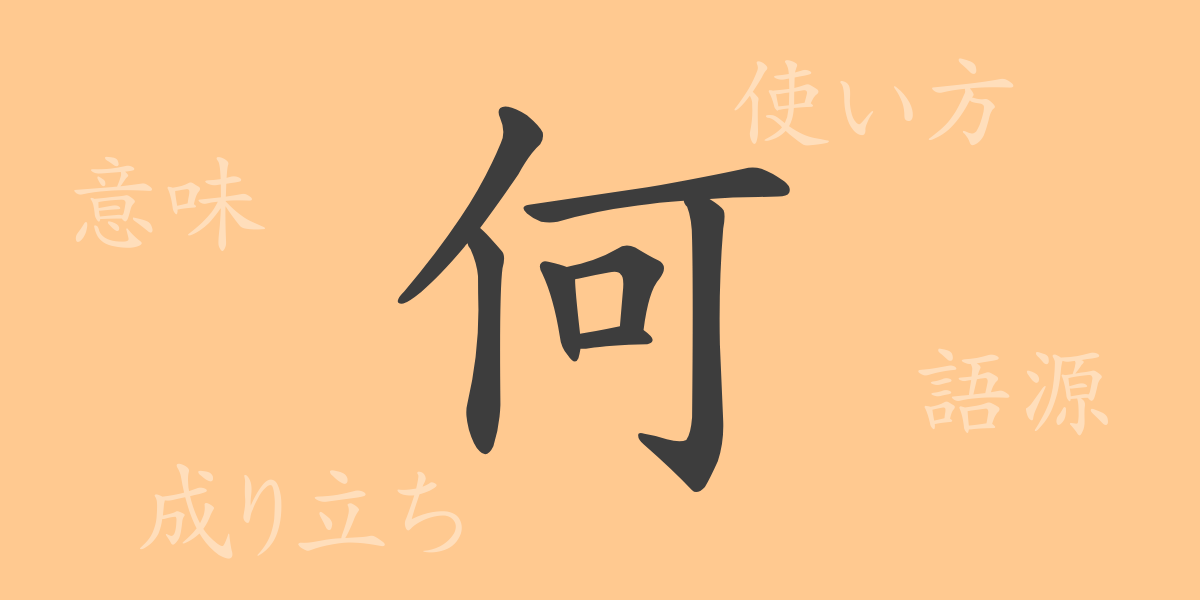”
Among the elements that make up the Japanese language, kanji are known for their complexity and beauty. One of the commonly used kanji, “”何”” (Nani/Nnn), frequently appears in everyday conversations and documents. This article will focus on the kanji “”何”” (Nani/Nnn), exploring its origins, meanings, usage, and even phrases and idioms that include it, delving into its allure and practical applications.
The Origins of 何 (Nani/Nnn)
The kanji “”何”” (Nani/Nnn) originates from ancient China and is a combination of pictographic and ideographic elements. It originally depicted “”a person opening their mouth as if to say something,”” representing questions or uncertainty. Over time, this kanji has evolved to encompass various meanings and usages, becoming an essential component of the Japanese language.
The Meaning and Usage of 何 (Nani/Nnn)
The kanji “”何”” (Nani/Nnn) is primarily used as an interrogative word. It signifies unspecified things, quantities, reasons, or methods when asking questions. It can also be used to express emphasis or surprise. For example, “”何これ?”” (Nnani-kore) conveys surprise or inquiry, while “”何でもない”” (Nnn-demonai) communicates that there is no problem or issue.
Readings, Stroke Count, and Radical of 何 (Nani/Nnn)
The readings for the kanji “”何”” (Nani/Nnn) are “”か”” (Ka) for the onyomi (Chinese reading) and “”なに”” (Nani) or “”なん”” (Nan) for the kunyomi (Japanese reading). It has a stroke count of seven, and its radical is “”人”” (Hito), which is associated with kanji related to humans. This radical is useful as an index when looking up kanji in a dictionary.
- Readings: Onyomi “”か”” (Ka), Kunyomi “”なに”” (Nani), “”なん”” (Nan)
- Stroke Count: 7 strokes
- Radical: 人 (Hito)
Phrases, Idioms, and Proverbs Using 何 (Nani/Nnn) and Their Meanings
There are numerous phrases, idioms, and proverbs that include the kanji “”何”” (Nani/Nnn). For example, “”何事も”” (Nanigoto-mo) means “”whatever the matter”” or “”no matter what,”” while “”何卒”” (Nanitozo) is a polite expression of a request, similar to “”please”” or “”kindly.”” Additionally, “”何もかも”” (Nani-mokamo) translates to “”everything”” or “”all things.”” These expressions can be flexibly used in conversations and writings, enriching the Japanese language.
Summary on 何 (Nani/Nnn)
The kanji “”何”” (Nani/Nnn) is an indispensable part of communication in the Japanese language due to its diverse usages and meanings. From its role as an interrogative word to its ability to enhance emphasis and expression, it is frequently used in our linguistic lives. With its easy-to-remember stroke count and pronunciation, “”何”” (Nani/Nnn) is also accessible for beginners, making it a key to deepening the understanding of the Japanese language.
“

























